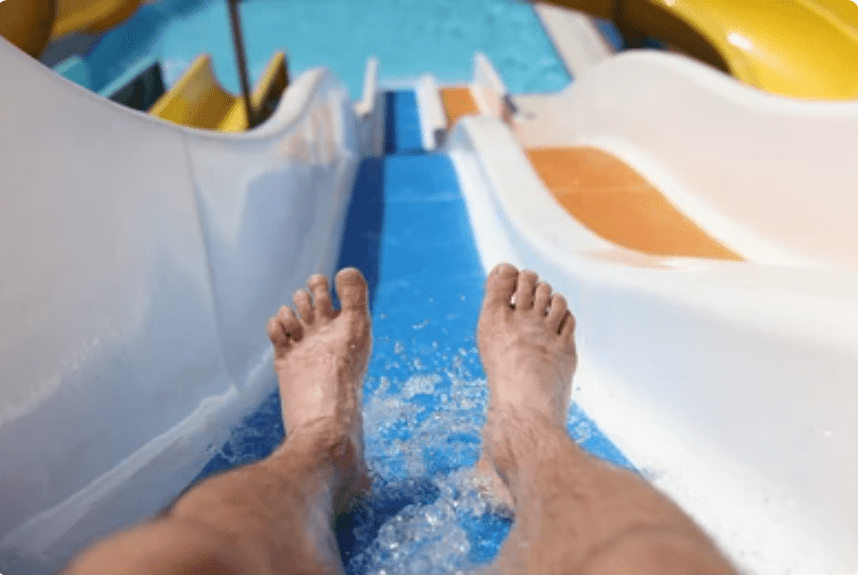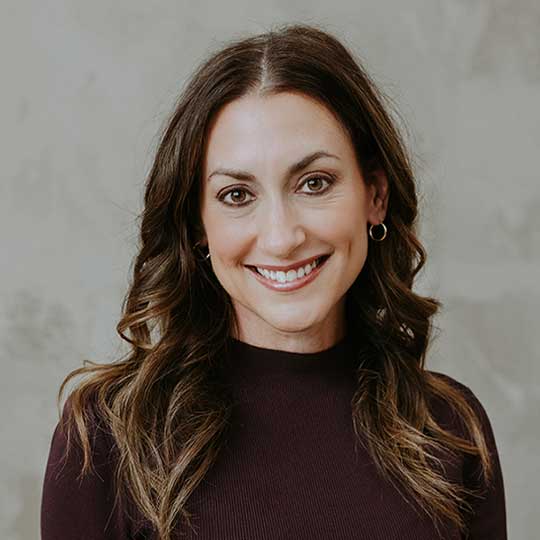Aug 26, 2025 in News Legal News
Legal News: Amusement Park and Water Park Injuries in Ontario: Your Legal Options

Exploring Legal Options After an Ontario Water or Amusement Park Accident
A trip to an amusement park or water park is a must for many Canadian families in the summer. These places are great for fun and adventure, whether it's Canada's Wonderland, Calypso Waterpark, or smaller local fairs and carnivals. However, despite the fun, there are significant risks involved. Every year, hundreds of people in Ontario get hurt at amusement parks and water parks because of dangers that could have been avoided.
It is very important to know your legal rights after an injury like this. In this blog post, we'll talk about the most common types of injuries that happen in parks, what causes them, who can be held responsible, and how a personal injury lawyer in Toronto can help you get fair compensation.
Common Types of Amusement and Water Park Injuries in Ontario
Amusement and water parks are complicated, always changing, and often dangerous. Different kinds of injuries can happen when there are machines, crowds, wet surfaces, and different levels of supervision. Some of the most common are:
Fractures and broken bones are common after being thrown off a ride, slipping, or being hit by moving equipment. Head and spinal cord injuries can happen when you fall from a height, get whiplash on a high-speed ride, or have an accident on a water slide. These injuries can cause problems that last a lifetime. Events of drowning or near drowning frequently occur in water parks due to insufficient lifeguards or their delayed response. Cuts, bruises, and scrapes are common injuries that happen when rides aren't kept up, tiles in pools are broken, or sharp objects are left in walkways. Broken electrical parts in water features or uncovered wires can cause burns or electrocution. Heatstroke, sunburns, and dehydration are common but often ignored when parks don't have enough shade, water stations, or first aid stations.Children are especially vulnerable to these types of injuries, and the psychological impact—such as post-traumatic stress or anxiety—should not be underestimated.
Why These Injuries Happen: Understanding the Root Causes
Most injuries at amusement and water parks are not accidents, even though they may seem like bad luck. Some common causes are:
Operator mistakes and not enough training: Ride operators and lifeguards need to know how to handle emergencies and make sure that safety rules are followed. Poor training can cause people to make mistakes that have serious effects. Mechanical failures and inadequate maintenance: Require parks to adhere to a strict upkeep schedule. If you don't check or fix rides and water systems, they could stop working in a dangerous way. Not enough signs and no warnings: Guests should know about ride restrictions (height, age, health conditions), water depth, and possible dangers. Insufficient staff or lifeguards on duty: Can lead to frequent water park drownings, especially when lifeguards are busy, distracted, or absent. Too many people and bad crowd control: Big crowds make it more likely that people will get trampled, that help will be delayed, and that things will get out of hand. Slippery or uneven floors: are a common cause of slip-and-fall injuries in changing rooms, food courts, pool decks, and on stairs.In a lot of cases, things going wrong at the same time can lead to a serious injury. Seeing these patterns is crucial when constructing a case.
Legal Responsibility: Duty of Care and the Occupiers’ Liability Act
Ontario's Occupiers' Liability Act says that anyone who owns or manages a property, like an amusement park or water park, has a legal duty to keep people safe on it. This duty encompasses maintaining safety, alerting individuals to potential hazards, and taking reasonable measures to prevent harm.
If an individual violates this duty and causes harm to others, they may face personal injury lawsuits.
Potentially liable parties may include:
The park owner/operator – Responsible for staffing, training, and day-to-day safety operations. Third-party contractors – Such as those who build or service rides and attractions. Security providers or event organizers – Especially in temporary or seasonal set-ups like fairs. Municipalities – In cases involving city-owned facilities or regulatory failures.Proving negligence requires detailed evidence, including maintenance records, witness statements, and expert assessments—an area where an experienced Personal Injury Attorney is invaluable.
Your Legal Options Following a Park Injury in Ontario
If you’ve suffered an injury at a park, you may be entitled to pursue compensation through a personal injury claim. This claim can help cover both tangible and intangible losses:
Types of Compensation You May Be Entitled To:
Medical expenses – Including surgeries, hospital stays, prescriptions, and rehabilitation. Loss of income – If you’ve had to take time off work or can no longer perform your job. Pain and suffering – For physical and emotional trauma. Future care costs – Particularly in the case of long-term disability or chronic pain. Out-of-pocket expenses – Including travel to medical appointments or equipment purchases.Time Limits to Keep in Mind
Ontario imposes a two-year limitation period from the date of injury to commence legal proceedings. In certain cases—especially involving minors—different rules may apply. Don’t delay seeking legal advice, as evidence can be lost or destroyed over time.
Your actions in the hours and days following an injury are critical. Here’s what to do: Seek immediate medical attention: Some injuries, like concussions or internal bleeding, may not show up right away, even if you feel fine. Report the incident: Inform the park staff or management about the incident and ensure they write up an official report. If you can, ask for a copy. Take photographs: Take pictures of the area, the danger, and your injuries. In court, pictures can be very convincing. Collect witness contact information: You need to collect the names and phone numbers of anyone who witnessed the event. Preserve evidence: Don't wash or throw away clothes, tickets, or receipts from the visit; keep them as evidence. Avoid speaking to insurers: Please refrain from contacting your insurance company or signing any release forms until you have consulted with a lawyer.Water Parks, Boating, and Overlapping Legal Considerations
Ontario’s water parks often include boating elements—kayaks, paddle boats, or lazy rivers with current systems. If your injury involves a boat or watercraft, even within a park, you may also be navigating boating-related legal frameworks.
For a deeper understanding of impaired boating and liability, review our detailed post on impaired boating accident law in Ontario. We also urge all Ontarians to stay informed by reading our blog on how to stay safe while boating.
For official government guidance, you can also consult Transport Canada’s Safe Boating Guide, which outlines your responsibilities and safety measures when operating or riding in watercraft—especially in shared or recreational settings.
How Neinstein Personal Injury Lawyers Can Help You
At Neinstein Personal Injury Lawyers, We have more than 50 years of experience working for injury victims all over Ontario at Neinstein Personal Injury Lawyers. If your family day at the park turned into a medical emergency, you need a lawyer who is compassionate and understanding.
Compassionate: We know how hard these situations are on people, especially when kids are involved. Knowledgeable: Our lawyers are highly skilled in complicated injury lawsuits and negotiating with insurance companies. Accessible: We offer free consultations, and you only have to pay if we win your case. Resourceful: We work with doctors, engineers, and safety experts to make the best case we can.Our legal team is based in Toronto, but we are happy to help clients all over Ontario, including Ottawa, Mississauga, Hamilton, and other places. When you hire Neinstein, you're not just getting a lawyer; you're getting a whole team that will fight for your rights and future.
Final Words: Take Action to Protect Yourself and Your Loved Ones
Injuries at amusement and water parks aren't just "accidents." They often happen because of bad planning, lack of supervision, and corporate carelessness. If you've sustained an injury, you don't have to endure silence or handle insurance companies alone.
Allow our experienced Personal Injury Lawyers to guide you through the legal process and secure the compensation you are due.
Category Selector
Select a category relevant to you.
- Social Host Liability
- Tort
- Spinal Injury
- Road Safety
- Slip and Fall Claims
- Snowmobile Accident
- Product Liability
- Rail Accidents
- Recalls
- News
- Nursing Home Negligence
- Personal Injury
- Physical and Psychological Injuries
- Negligent Supervision
- Neinstein in the Community
- Medical Malpractice
- Motorcycle Accidents
- Long Term Disability
- Chronic Pain
- COVID-19
- Dog Bites Claims
- Events
- General
- Homeowner Liability
- JUUL & Vaping
- JUUL Vaping Lawsuit
- Lawyer Profile
- Legal News
- Legal Representation
- Liability
- Long-term Care
- Blogs
- Boating Accident
- Brain Injury
- Car Accident
- Accident Benefits Claims
- Auto Insurance
- Bicycle Accidents
- Water Accidents
- Wrongful Death
- In the Community
Area of Expertise
Personal injury
Personal injury claims come in all shapes and sizes. Our practice has represented clients seeking compensation from individuals, small businesses, corporate entities, medical professionals and facilities, and insurance providers. This diverse experience has made us one of Ontario’s most reputable and trusted personal injury law firms. If you or a member of your family has been catastrophically injured, contact a Neinstein personal injury attorney to discuss your legal options.
More Posts Legal SupportBook A Free Consultation
We will not charge you unless your case is successful.
At Neinstein we have been advocating for injured victims for over 55 years. Our committed and compassionate team will do everything necessary to help you and your family find solutions to the new challenges that arise from serious injuries.
Our team will ensure you access the proper healthcare support to aid in your recovery. While you focus on your rehabilitation, we will thoroughly investigate your case and guide you through the litigation process so we can achieve the maximum compensation that you deserve.

